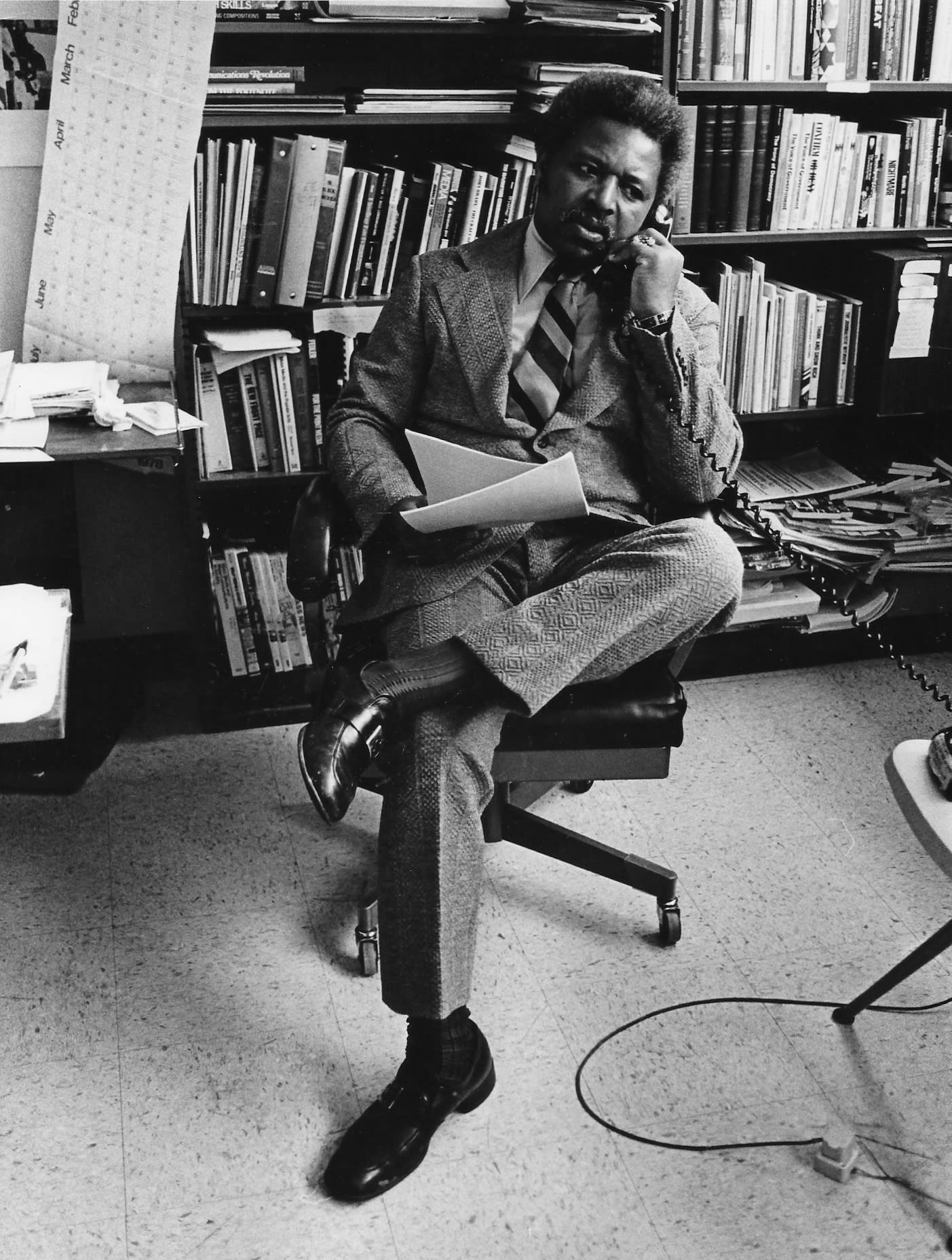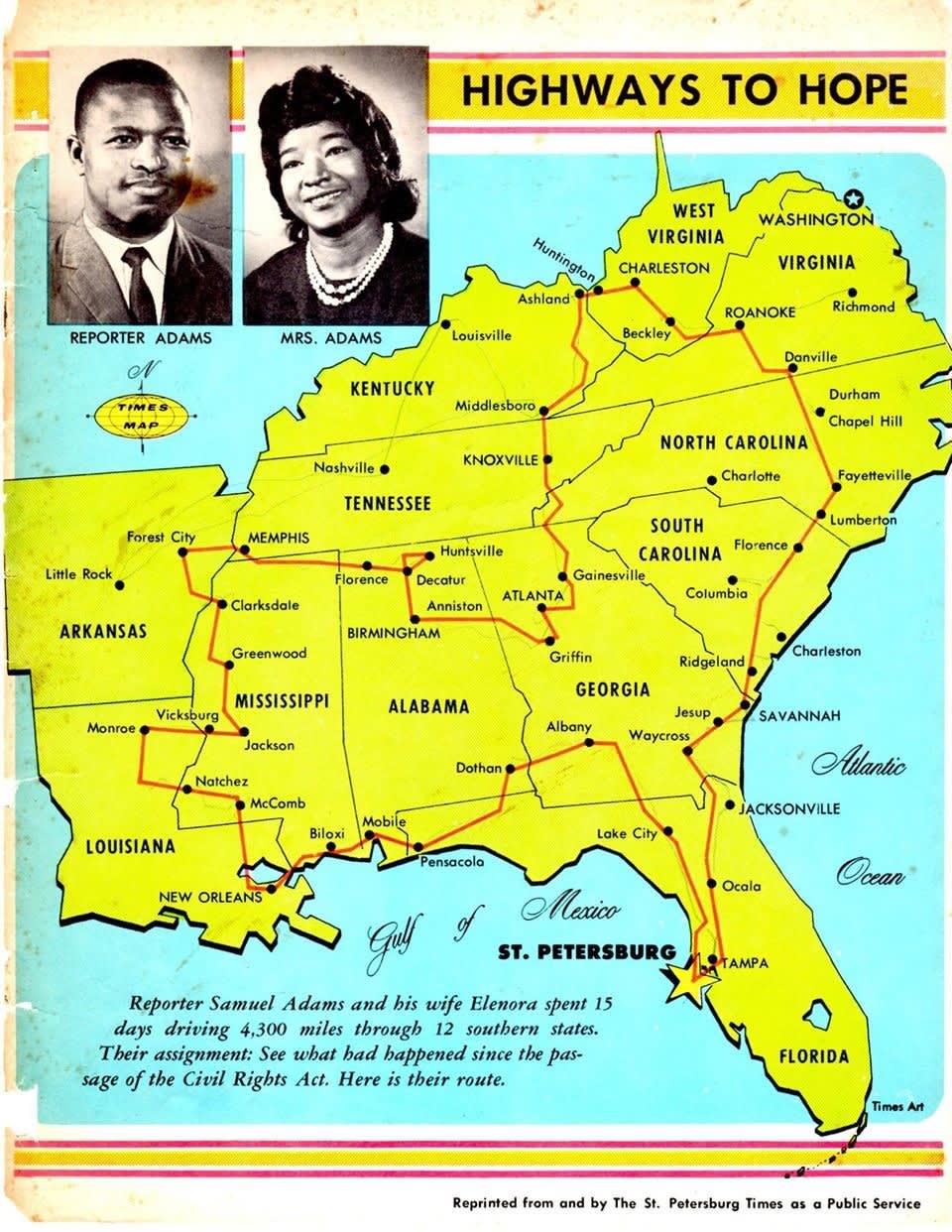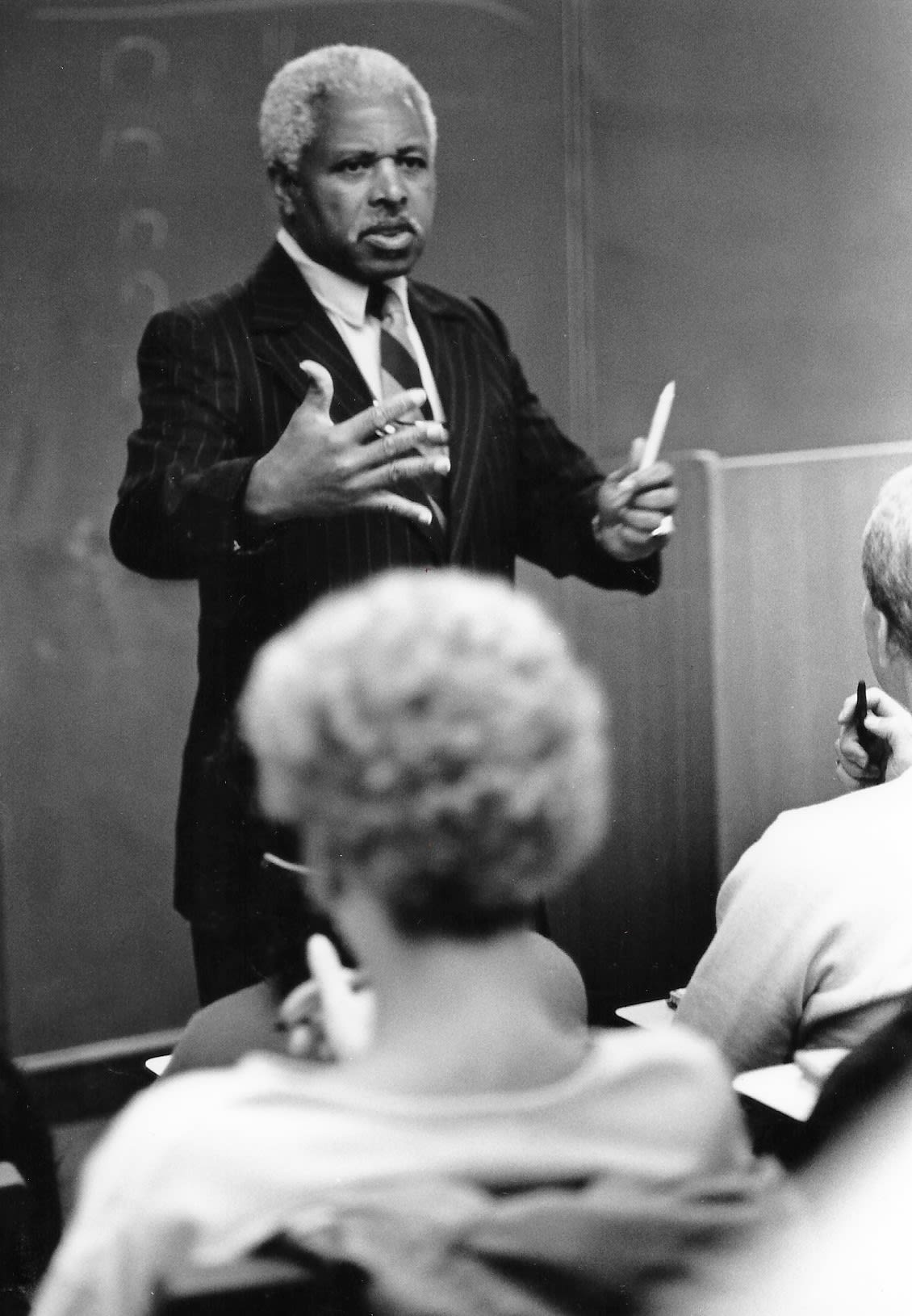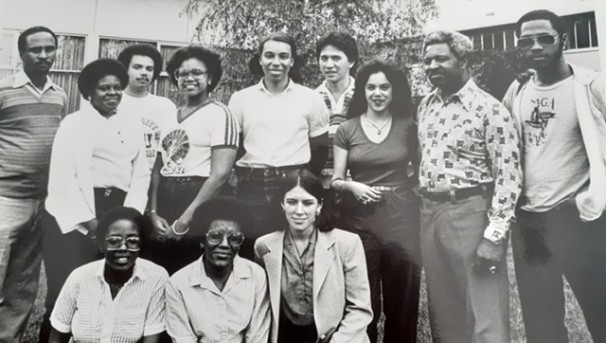Samuel L. Adams Emerging Voices in Journalism Fund
 Please join us in honoring Professor Samuel L. Adams by contributing to the the Samuel L. Adams Emerging Voices in Journalism Fund. Black students have long faced significant barriers to attending college, including finding money for tuition and associated fees. This fund will ensure that future generations of journalism students get the opportunity to turn their dreams into reality, ensuring that Professor Adams's lifelong work and legacy continues.
Please join us in honoring Professor Samuel L. Adams by contributing to the the Samuel L. Adams Emerging Voices in Journalism Fund. Black students have long faced significant barriers to attending college, including finding money for tuition and associated fees. This fund will ensure that future generations of journalism students get the opportunity to turn their dreams into reality, ensuring that Professor Adams's lifelong work and legacy continues.
Samuel L. Adams was a pioneer among black journalists in the United States and he was honored by many national organizations for his contributions to journalism, and his efforts to advance minorities in the field.
Choosing journalism over medicine, Adams earned several degrees, including a bachelor's in English and Fine Arts from West Virginia State College where Eleanor Roosevelt and Mary McLeod Bethune spoke at his graduation; a bachelor's in Journalism from Wayne State University; and a master's in Journalism from the University of Minnesota.
During his 42-year career, he was an award-winning journalist, an educator at five universities, a national political consultant, a civil rights activist and started the first black radio newscast at Atlanta's WERD 860, the nation’s first black-owned station.
He was a friend of the Rev. Dr. Martin Luther King Jr., the two debated the role of the black press and the ministry in the civil rights movement. He interacted with many prominent people including Supreme Court Justice Thurgood Marshall, civil rights activists Vernon Jordon, Medgar Evers, Ossie Davis, Dick Gregory and 1972 Democratic presidential candidate Hubert H. Humphrey of Minnesota.
Adams had a knack for being where the action was. In 1963, he was the only black reporter from major media covering the integration of the University of Alabama, standing only 10 feet from Gov. George Wallace, who blocked the doorway to a classroom in Tuscaloosa. He covered the violence in Birmingham when peaceful demonstrators were thrashed with fire hoses. He was in Washington, D.C., when King delivered his “I Have a Dream” speech. He was at the Watergate office building during the 1972 break-in at the Democratic National Committee (DNC) headquarters, where he served as the deputy director of the DNC’s Minorities Division and the assistant director of communications.
Adams worked as a reporter for the Atlanta Daily World, a copy editor for the Des Moines Register, and an investigative reporter for the St. Petersburg Times. He was an educator at the University of South Florida, the University of Wisconsin, the University of Kansas, Hampton Institute, and the University of the Virgin Islands. He mentored many Black students who had successful journalism careers — three of them would win Pulitzer Prizes — one of his proudest achievements.
While at the University of Kansas, Adams founded the Ida B. Wells Award, given annually by the National Association of Black Journalists (NABJ) to honor those who have shown exemplary achievement advancing, hiring, and promoting minorities in the news media. NABJ honored Adams with this award in 2002, after his retirement, and earlier awarded him a Lifetime Achievement Award in 1997.
After the passage of legislation outlawing segregation in 1964, Adams and his wife Elenora, traveled 4,300 miles through 12 southern states to check compliance of the new laws. The Adamses journey was a real-life Green Book, a reference to the travel guide that listed businesses that would accept Black customers. He was nominated for a Pulitzer Prize for the series of articles he wrote about the journey. Less than a year later, he received another Pulitzer nomination for uncovering the mishandling of federal funds by college officials at Gibbs Junior College in St. Petersburg, Fla. He also received the prestigious Green Eyeshade Award for his investigation of working conditions facing migrant farm workers in Florida, which helped launch President Lyndon B. Johnson’s war on hunger and fight for wage increases for migrant workers.

Adams served as director of the Atlanta-based Southern Regional Council in 1965 and 1966. He wrote a grant proposal and received $1.5 million from the Ford Foundation to start the Voter Education Project. This project helped to elect hundreds of minority officials across the South.
His professional accomplishments, influence on race relations, politics and involvement in the civil rights struggle are legendary, but he truly shined as an adoring son, a devoted husband, father, grandfather, great-grandfather, a supportive brother to his siblings, and a doting uncle, friend and role model to his many students.




